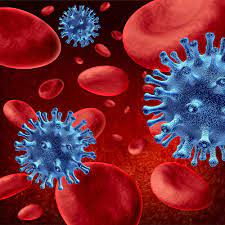Post COVID-19: University Of Melbourne Study Shows That Elevated Plasma ACE2 Activity Lingers Months After SARS-CoV-2 Infection With Possible Heart Issues
Source: Post COVID-19 Oct 12, 2020 5 years, 2 months, 1 week, 6 days, 3 hours, 19 minutes ago
Post COVID-19: Researchers from the University of Melbourne-Australia and Burnet Institute-Australia in a new study have discovered that elevated plasma angiotensin-converting enzyme 2 or ACE2 activity still persists months after SARS-CoV-2 infection. The study team reported that the downregulation of cardiac ACE2 is linked to increased plasma ACE2 activity.

The COVID-19 disease causes besides numerous other medical conditions, persistent endothelial inflammation, lung and cardiovascular complications. The SARS-CoV-2 uses the catalytic site of full-length membrane-bound angiotensin converting enzyme 2 (ACE2) for cell entry causing downregulation of tissue ACE2.The study team reported downregulation of cardiac ACE2 is associated with increased plasma ACE2 activity. In this prospective observational study in recovered COVID-19 patients, the team hypothesized that SARSCoV-2 infection would be associated with shedding of ACE2 from cell membranes and increased plasma ACE2 activity.
One of the implication of this is that increased ACE2 plasma levels is associated with increased cardiovascular problems hence Post-COVID-19 or recovered patients should be on a look out for other heart issues besides myocarditis, another heart condition affecting almost 78 per cent of Post-COVID-19 patients.
The study findings are published on a preprint server and are currently under peer review.
https://www.medrxiv.org/content/10.1101/2020.10.06.20207514v2
In the new observational study involving patients who have recovered from COVID-19, the study team hypothesized that SARS-CoV-2 infection is associated with ACE2 shedding from cell membranes and increased activity of plasma ACE2 receptors.
The study team measured the catalytic activity of plasma ACE2 with the help of a validated and sensitive quenched fluorescent substrate-based assay in a study cohort comprising 18-year-old Australians (n=66). The latter had recovered from mild, moderate, or severe SARS-CoV-2 infection. The positive result was confirmed using the RT-PCR test. Age and gender-matched uninfected individuals (n=70) acted as controls. Serial samples were available in 23 recovered patients.
Significantly, it was found that Elevated plasma ACE2 activity persisted in SARS-CoV-2 patients 114 days post-infection.
The study findings of the study show that plasma ACE2 activity at 35 days post-infection was 97-fold higher in recovered COVID-19 patients when compared to uninfected controls (p<0.0001). Also, plasma ACE2 activity significantly varied with disease severity (p=0.033). Severe COVID-19 was associated with higher ACE2 activity as compared to mild disease (p=0.027).
Also interesting is the fact that SARS-CoV-2-positive men (n=39) had higher median plasma ACE2 levels when compared to SARS-CoV-2-positive women (n=27) (p<0.0001). The team also analyzed if elevated plasma ACE2 activity persisted in SARS-CoV-2 positive subjects at 63 and 114 days post-infection. They found that plasma ACE2 activity stayed persistently elevated in most participants, with no significant differences between time points in post hoc comparisons (p>0.05).
Impo
rtantly increased plasma ACE2 can be an independent risk factor for patients with cardiac disease
This is the first study to find elevated plasma ACE2 activity after COVID-19 infection, and also the first with longitudinal data that indicates that plasma ACE2 activity stays elevated even at 114 days post-infection.
The study team concluded that SARS-CoV-2 binding to ACE2 could have 2 effects. First, downregulation of membrane ACE2 which causes a dysregulated local renin-angiotensin system, which in turn triggers inflammation and tissue damage. Second, the dysregulated renin-angiotensin system is associated with prolonged release of the active site of ACE2 into the blood circulation.
Past studies have shown that increased ACE2 was linked to increased risk of major cardiovascular events. Although the pathophysiological cause or consequence of elevated plasma ACE2 activity in severe COVID-19 is unknown, the study showed that increased plasma ACE2 activity could be an independent risk factor for patients with cardiac disease.
Importantly at a time when there is growing concern over severe COVID-19 in some patients and how to manage it, the authors emphasize the need for more extensive studies in the future to examine if elevated plasma ACE2 activity can identify at-risk individuals who are more prone to prolonged illness following SARS-CoV-2 infection.
Lead researcher and corresponding author Dr Sheila K Patel PhD from the Department of Medicine, Austin Health, University of Melbourne, told Thailand Medical news, “Larger studies are now needed to determine if persistent elevated plasma ACE2 activity identifies individuals at risk of prolonged illness following COVID-19 and to address whether therapeutic strategies directed at a dysregulated renin-angiotensin system can reduce COVID-19 complications.”
In the meanwhile, Post-COVID-19 or recovered patients are recommended to go for regular checkups and also have heart health screenings if possible.
For more on
Post COVID-19, keep on logging to Thailand Medical News.
